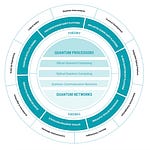I have a new podcast out about objective knowledge. Find it at that link there on Youtube or else any podcast player as “ToKCast” episode 116. In that episode of ToKCast I explain what objective knowledge really is in a couple of senses and compare it to other visions of knowledge. The most popular alternatives today are “Bayesianism” or Bayesian epistemology and “Objectivism” or Objectivist Epistemology.
I have talked about this all before on various podcasts but for some reason there have been a few occasions recently where I wish I had a quick go-to set of refutations of Bayesian and Objectivist “epistemologies” and explanations of actual objective knowledge: the vision of knowledge Popper had. If you listen to that podcast you will hear there is literally no comparison. Popper and Deutsch explain knowledge as being literally objective. The alternatives are all subjective - at least in some sense of the word. There I am more formal but here in the newsletter I’ll allow myself an indulgence: alternatives to Popper really are wishy washy. They’re a kind of hippy vision of epistemology. It’s all about feelings and “the vibe” of the thing. It really is squishy-squashy stuff if you step outside of Popper’s epistemology. This does not mean Popper lacks emotion - it is inspiring - it is grand and with Deutsch’s addition it is cosmic in its significance. So there’s that. What it does not do, however, is invoke emotion as being fundamental and does not invoke what you believed you might have seen. It’s about stuff going on out there beyond your mind.
In other news I continue to think about how to kick start progress in physics. There is a book by Howard Burton called “First Principles” about the building of the Perimeter Institute. It is at times an hilarious read. I am just about finished it. Howard is a PhD in theoretical physics who was employed by the guy who helped invent the Blackberry to build the institute and help physicists escape from the administrative problems with the usual research institutes like the universities. But - well - the way Howard tells it, the PI fell into infighting and immaturity among members and they took on government sources of funding and of course that then meant all the issues with a traditional university began to plague them.
It is a very entertaining read.
The federal election campaign in Australia continues apace. The Labor opposition leader has made a number of what they call gaffes - which is basically anytime you make a mistake. Fallibility is of course not tolerated by the media in politicians. Nor is changing your mind because then you’re “flip-flopping”. Anyways Mr. Albanese was some weeks ago unable to recall the unemployment rate. This was after him challenging the assembled reporters to ask him about anything at all - prices and so on for milk and bread (like that’s important). So someone asked him the unemployment rate and he stumbled over it being 5.4 or 5.something percent. It’s 4.something and this has been something the government has touted for a while now - record low unemployment. So of course the government made hay about this and the opposition denied it was a big deal. “The election is not a quiz show” and all that - but this was after the opposition leader himself asked to be questioned. And then last Thursday Mr. Albanese - when asked what his “6 point plan” for the national disability insurance scheme was - could not name the 6 points- in fact he struggled to name one. So again the big news story was that he had forgotten something he could have looked up but was expected to memorise. A ridiculous standard for judging good politicians. But this is the problem they helped create. They helped create the culture and if any government minister forgets anything you absolutely know that the opposition will jump on that kind of mistake. The problem is of course a lack of principles - deep moral ideas that guide how people should behave and what might be expected of politicians (for example). And I guess it’s a warning not to enumerate your plans and policies. Don’t make a 6 point plan. Have a plan that says something like - we broadly aim to improve things in this way and among other things seek to lower costs. Or something like that. Of course then you might be accused of being scant on details.
In Popper’s view what we are doing is not so much voting in the ideal candidate. There is no ideal available. Or even a good one. We are voting against someone rather than for someone. I don’t want either of them to rule over me. But forced to choose I really don’t want that one to rule over me. Or that one. And the last one standing , well that’s where the vote goes. Or in Australia unfortunately that’s where preference one goes. Yes: we have a preferential system. And this time around we have a bunch of independents who, it seems, are not really independents -they are on the left so will support the opposition labor party if they do get in. What this means is that if the parliament is “hung” (which means neither side has a strict majority and this has happened before federally in Australia) then what will happen is that the independents who are ostensibly not aligned with either major party - have disproportionate power. They are the king makers. They can side with the Liberal side or the Labor side (by the way: yes: that is how the Australian Labor Party spells “Labor”) and make deals until they get what they want and even then hold whoever they designate as king effectively hostage. The axe is always held at the neck of the party in power by the third largest party in these situations: we will chop you down if you don’t do as we say and support the other mob. If you want to hear more about Popper’s vision of democracy, Deutsch’s succinct explanation of it and my own reflections on all that see this episode of the podcast.
So we have a bad political system in Australia in some ways. But people do like multiple parties - because they may be labouring under a misconception about how “choices” should be made. They need to read Popper. Or David’s chapter 13 “Choices” from the Beginning of Infinity. Or my podcasts on this here in part 1 and part 2.
Until next time!














Objective Knowledge, Physics Funding and Elections